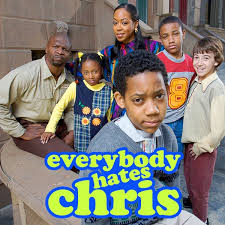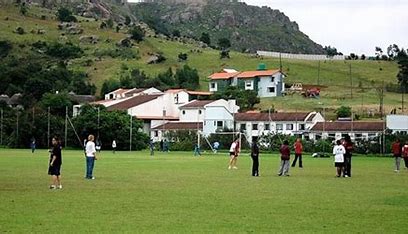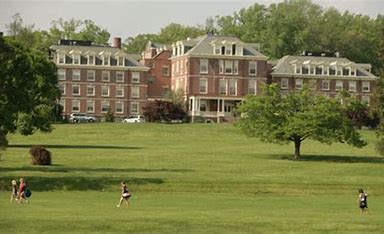One of my favorite episodes from the sitcom Everybody Hates Chris goes something like this: Chris and his mother are watching a holiday news broadcast. Suddenly the boy’s teacher from his new, white school enters the screen. As the teacher waxes poetic about an impoverished family, Chris’s mother tears up with empathy.

Then the TV cameras follow the teacher as she attempts to deliver a meal to this poor family. Chris opens his front door only to find the teacher at the threshold of the brownstone his parents own. The family labeled as needy is his.
The sitcom was based on comedian Chris Rock’s childhood in Bedstuy, Brooklyn, and his misadventures at the school he attended as part of the busing experiment.
Throughout the series it was a running gag that Chris’s teacher, who never asked him questions about his life, who talked at him rather than with him, assumed that he was indigent. After all, didn’t Chris’s skin color tell his whole story?
I cackled when I saw the holiday episode, doubling over as my body shook with mirthless laughter and my eyes filled with bitter tears. It reminded me so much of an event from my boarding school experience:
At George School, a “progressive” Quaker school in Newtown, PA, that I attended from 1977 to 1980, there were few Black students and no Black staff. The Black students’ advisor was a pale, freckled red-haired white man who taught history.
One evening the advisor drove a small group of us to a party with other Black students at a nearby prep school. I remember dancing to Michael Jackson’s “Rock With You” with a new friend, giggling as we perfected the steps, knees bent, hips swaying. It was an exhale moment to hear “Black” music. To dance to my own tempos. To be asked to dance.
After the event the advisor picked us up and attempted to make conversation, interrupting us as we excitedly deconstructed the evening with one another. “So,” the advisor said to one of the girls from NYC, who I’ll call Sharon, “you seem to be adjusting well to the school, given where you’re from and that you don’t have a Dad at home.”
“My Dad’s at home,” Sharon countered quickly, grimacing as the energy in the vehicle went flat. In reality most of the white students were from “broken” homes, in the parlance of the day. In my senior year, when I was forced, yes forced to be a prefect, my roommate and I realized that we were the only girls on our hall with married parents. I was the only Black person.
Two of the girls we were in charge of swallowed pills and had to be taken to the infirmary during the first week of school. The guardian of one of the girls couldn’t be reached; she had gone on a trip without leaving any forwarding information. Many of the students were dumped at this boarding school as their parents fought through acrimonious divorces or moved on with new families. Cash flowed, loving, thoughtful parenting often didn’t.
A white friend of mine had her psychiatrist pressure the school to admit her so that she could be removed from her abusive home environment. Yet another navigated her entire boarding-school experience alone. No one from her family even turned up for graduation. On the day of the ceremony she hovered between groups of visitors, including my boisterous Jamaican family, three generations strong. It’s rumored that she drank rubbing alcohol.
Yet we, the Black students, were always under scrutiny.
I once spent a weekend with a white fellow boarder who I’ll call Darla, someone my parents never would have allowed me to associate with had they known her history. (My academic advisor, a woman who discouraged me from taking AP courses, signed the weekend consent forms for my parents, who were a continent away, then in Malawi.)
Darla had left school and run away with a grown man. After her parents retrieved her and threatened the boyfriend with statutory rape, and after a semester-long suspension, she returned to school. For whatever reason she was nice to me, and I was nice to her in return. While I was quiet and reserved she was spunky and funny. We became friends, I thought.
I quickly learned that I had been invited home with Darla to serve as a buffer between her stiff father and pleasant but somewhat melancholy mother. Something just wasn’t right in that household. I couldn’t put my finger on it then and can’t now.
On Sunday evening, a few hours before Darla and I were to return to school for the week, we decided to devour an entire cheesecake. Just the kind of goofy decision making that is typical of teenagers. As we dug into the dessert, Darla began to dig into me about the welfare state. Now, I don’t know too many seventeen-year-olds who are well versed on America’s safety net, but clearly Darla had her arguments lined up, ready–and aimed at me.
“People who work shouldn’t have to pay for people who don’t,” she told me, peering at me over the cheesecake’s wreckage.
“Huh?” I said, my voice muffled by a mouthful of gooey sweetness. I had no idea of what this conversation had to do with me. My father worked for the United Nations Development Programme, and my mother, a former teacher, was a homemaker like Darla’s. How was I suddenly responsible for people stereotyped as moochers?
At George School, all students had service duty–jobs like working in the kitchen or the library to help defray costs. Savings helped cover the costs of the mostly Black and brown scholarship students, privileged white students were told.
One day, as I was doing my job stacking the dishwasher, a white boy who I’ll call John complained that it wasn’t fair that we all had to do chores to “support” other people. He slammed the cheap plates noisily, scowling throughout our shift. As a Black person, he automatically saw me as one of the people responsible for making him work. This was a common perception; John just verbalized it to my face.
My school in eSwatini, Waterford/Kamhlaba, which I had attended before my George School days, assigned students to groups for sports and service. I don’t remember anyone in the administration explaining to us why we did service anymore than why we did sports. Our culture was one that respected authority and one in which authority was worthy of respect. We the students simply did as we were told.

I, too, was raised in financially privileged households in Liberia, Malawi and eSwatini. I rarely did housework, and seldom even made my own bed. Despite my lack of chores at home, I gamely took to the service projects, which included work on the grounds. It was my group’s job to help maintain the beauty of our own campus.
Years later, when I read about how my former schoolmates from Waterford/Kamhlaba took their places as builders of fledgling democracies, I was proud of the small contribution I had made to their development and to my own. Service was not a burden. It was a privilege.

It was a failing of George School’s leadership that overindulged children disdained a few minutes of manual labor each week, and worked as sloppily as possible, the closest thing to a protest any of them would ever engage in. He’s not my brother. He’s heavy, was the inadvertent message from this school, which prided itself on getting teenagers to write credos so that they could avoid war; that job was ultimately left for the mostly poor and the Black and the brown.
The different takes on service represent what was a mammoth culture gap between white students at George School and other people of color and me. Endlessly fragile, some white people, like those whom I went to school with, panicked when their carefully constructed worlds were interrupted, however slightly. And because their carefully constructed worlds included few deep relationships with people of color, any pigmented passerby could become the object of their rage, a target for lectures like the one I got from Darla or the complaint I got from John.
It has been 40 years since I graduated from George School. have had no interest in returning to the campus or in attending the Zoom Meeting for Worship focused on race (sorry to the dear heart who invited me) like the one that took place last week. Issues of racial inequality have plagued the school for decades before the murder of George Floyd. As an institution that sells itself as a multiculti nirvana, this is a Yoda moment: Don’t try. Do.
To the students of any stripe who attended George School or any school like it on scholarship and/or through a program for financially modest families, hug and kiss your parents for all they did to educate you. As for my parents, the products of one-room schoolhouses in rural Jamaica, who marveled at George School’s physical setting, my silence about what I encountered there is my embrace. Good parents shield their children. Good children shield their parents.

To those who don’t know what to do after watching yet another snuff film capturing the police brutality that is as much a part of the American story as baseball and apple pie: If you’re anything like the students I went to school with 40 years ago, do what so many of them would do. Nothing.

You must be logged in to post a comment.